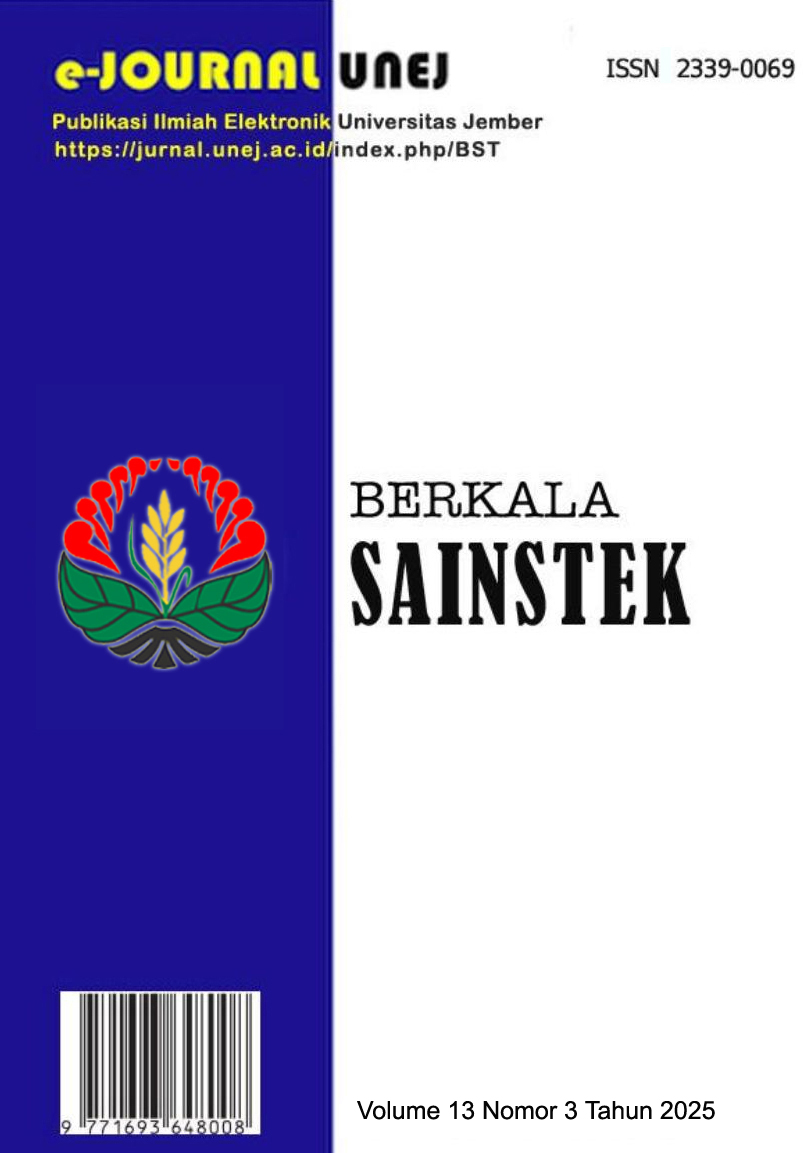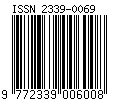Comparison of Types of Etanol Solvents, Antibacterial Test Methods, and Bacterial Inoculation Techniques used to Determine The Antibacterial Activity of Turmeric Rhizome Ethanol Extract Against Escherichia coli
DOI:
https://doi.org/10.19184/bst.v13i3.46865Keywords:
Turmeric rhizome ethanol extract, Antibacterial activity, Escherichia coliAbstract
Turmeric is a plant with antibacterial properties due to the curcumin content found in its rhizomes. Antibacterial testing of plant extracts is influenced by several factors. This study aims to determine the effect of the type of ethanol solvents, antibacterial test methods, and inoculation techniques used on the antibacterial activity of turmeric rhizome ethanol extract. Turmeric rhizome ethanol extract was prepared using two types of ethanol solvent, namely 99% ethanol (absolute) and 96% ethanol, with the final concentration of the extract used being 80%. The antibacterial test methods used were the disc diffusion method and agar well diffusion. Additionally, two inoculation techniques were employed for the test bacteria, E. coli: the spread plate and pour plate methods. The research results showed that the ethanol extract of turmeric rhizomes was capable of inhibiting E. coli growth under various treatment conditions. The highest average inhibition zone was in the PA_C_SP treatment, which was 29.82 mm, while the lowest average inhibition zone was in the T_S_PP treatment, namely 2.12 mm. The type of ethanol solvent that produced a larger average inhibition zone was 99% ethanol. The disk diffusion antibacterial test method produces a larger average zone of inhibition than the well diffusion method. The average inhibition zone results for the spread plate inoculation technique were greater than for the pour plate inoculation technique. These findings indicate that the type of ethanol solvent, antibacterial test method, and bacterial inoculation technique significantly influence the antibacterial activity of turmeric rhizome ethanol extract. However, further research needs to be carried out regarding the effect of the type of ethanol solvent, antibacterial test methods, and bacterial inoculation techniques in turmeric rhizome extract on other types of pathogenic bacteria.
Downloads
Downloads
Published
Issue
Section
License
Copyright (c) 2025 Endang Soesetyaningsih, Azizah

This work is licensed under a Creative Commons Attribution-NonCommercial 4.0 International License.




